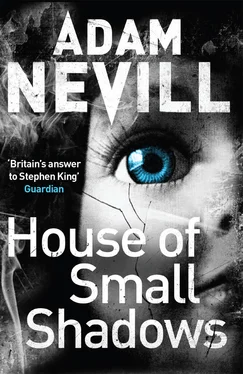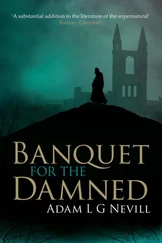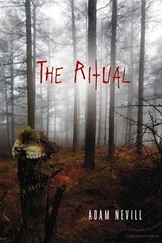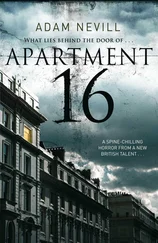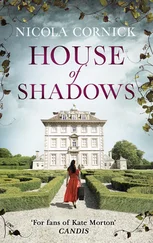She didn’t know. She didn’t know anything. She wanted to know, and she wanted a natural explanation; she would have given anything for this to make sense logically, no matter how repellent the truth.
Her desperate explanations still felt insubstantial, as though she was repeating wishful thinking to believe something she knew to be false.
Edith had been making preposterous claims that she and her biological mother were from the village. She knew nothing of her natural parents, only that her mother had been poor and unable to cope.
Could she and her mother really have been from Magbar Wood? The village would have been under the awful influence of the Masons then. Judging by the age and state of the closed stores, she imagined her birth would have occurred around the time the village stopped functioning. Maybe her mother had tried to save her from what was happening by giving her up for adoption?
If there were a grain of truth in any of her suppositions, then all that had happened to her since she first drove to Green Willow felt inevitable, some kind of destiny; even a part of something mystical that M. H. Mason had started, that wanted to reclaim her. Wasn’t this what Edith wanted her to believe?
No. She could not allow herself to accept what was being suggested to her by Edith, about what Mason had excavated and brought inside this hideous house. Something from the past. Something that had transformed the Masons, if not taken over their lives, and those nearby. She would not accept Edith’s madness. Because it was patently impossible. Absurd and irrational. Nonsensical superstition.
But what did they, Edith, Maude, and whoever else was here, really want from her, of her? And what did they want her to think right now? That the Red House was alive? That existence could stop beyond the windows too, as if the building was some kind of doll’s house that changed and played out its stratagems with living occupants? Edith had said something about a great effort being made to remain here. What had she meant by that?
She thought harder on what she knew. Mason had spent a lifetime meddling with pieces of things that predated the Romans. The house and the land it was built upon had been significant to him in some way. And she seemed to have been infected by the place as he had. So maybe the taint that poisoned M. H. Mason had endured. One that let you see through to other things, other sides. It took Alice…
Stop it!
Maude had drugged her. She was now susceptible to anything. She could be full of LSD; she had no idea what she had been given to drink. But people had died here. Had been murdered here. Or had they?
She had to get out.
Catherine unlocked the door of the bedroom. But waited, with her ear pressed to the wood, the scalpel gripped so hard the handle hurt her hand. She heard nothing outside the room. Tensing her body, she turned the handle and stepped backwards as she pulled the door open.
And stared across the unlit passage at the glimmer of the closed door opposite. She moved into the doorway. Tried to direct her hearing further into the corridor she couldn’t see, to detect a creak of a floorboard, a footstep, a breath.
Nothing.
She peered to the right. Nothing visible beyond a few feet of near total darkness, partially relieved by whatever thin light fell out of her room. To the left, a glance informed her the stairwell was lit, but only just. All was as it had been before she came down from the attic to lock herself in Edith’s room and fell into a dream-filled coma. So this, the house in this physical state, was real.
She shivered. Was dressed in only the thin white pageant gown while stood in a draught. One that grew stronger as if there was a window open nearby. But not in her room. No, the current of cold air blew from elsewhere, outside.
Yes, a window must be open in one of these locked rooms because the air smelled of… wet leaves, slippery brown leaves, layer upon layer of rotten leaves and rotten wood. Black soil. Long wet grass. Cold air on a cloudy day with a hint of bonfire smoke. Impossible, but her senses told her she could now be outside on a winter’s day.
The fragrant draught blew through the passage from the window at the end. If it were open, she could climb out onto the roof outside, find a way down and run.
Catherine moved through the darkness, the scalpel leading, towards the source of the breeze like it was an escape route detected in an ancient tomb. She swiped the blade in arcs before her. If anyone stood in her way, the surgical steel would find them before she did.
And if she wasn’t mistaken there was also an aura of greyish light visible around the curtains as she approached the casement window. It must be open. Perhaps it had been all along. Or was she meant to find it open?
Dawn could be breaking. Blessed morning might have arrived.
She drew aside the curtains and pulled back the half-open shutters to see what looked more like dusk. She might have been in a trance for so long she’d gone through the day and woken late again. But in winter?
And she must still be in a trance because how else could she explain what stood upright, down there amongst the high grasses of the overgrown garden?
She put the scalpel against her forearm and pulled it back in one quick slice to make sure she was awake. The pain made her jump and in the grey light she saw a dark, wet line appear on her skin.
Catherine whimpered. She must be hallucinating, but didn’t feel drugged any more, not even vaguely soporific. The trance was over. It might have left her mentally drained and physically tired, but she wasn’t dreaming this.
There are other places.
She closed her eyes and shivered before the open window. Blood trickled down her left forearm and tickled her wrist. She opened her eyes. They were still there.
A line of ragged children with odd-shaped heads stood in the thin light. They looked up at her in silence, just as they had watched her so many years before.
The tatty silhouettes of their heads she better understood now to be mostly comprised of animal ears and poorly fitted wigs. The tallest child was a girl and wore a bonnet. Closest to the house, the boy with the painted wooden face and unkempt black hair raised one arm as if to wave. His other hand was enclosed by the small fingers of a little girl. One lens of her glasses was covered in sticking plaster.
Somehow Catherine found the strength to turn on her leaden feet and to flee back to Edith’s bedroom with her hands clutched across her eyes.
None of this was real. She must still be stuck in a trance. A powerful one she had become conscious inside and remained conscious within. Or she had been drugged. Powerful chemicals were making her see things.
In her mind she could see Edith’s lipless mouth and thin yellow teeth. One of my uncle’s formulas.
Or had she just seen children wearing masks? She had heard children here, seen their faces at windows. Hadn’t the Masons once dressed children up here? But Alice… Alice was impossible. If Alice was even alive she would be the same age as Catherine was.
Catherine fell upon the bed and began to scream to wake herself up. But the sound of her hysteria only seemed to alert the inhabitants of the house, because now there was a commotion downstairs, and then in the stairwell, and then in the corridor outside. And she could clearly hear the sound of feet running to the door of the room. Little feet. A crowd of little feet.
She came awake with her fingers clutching cold metal on either side of her hips. Old steel bedsprings protested with enough groans and squeaks she barely heard herself whimper, ‘God.’
Sunlight slotted through chinks in wooden boards nailed across the window frame. A draught scented with earth and dew brushed her face.
Читать дальше
